GamesRadar is turning 20! To celebrate, we looked back at the 20 best games of our lifetime
GamesRadar turns 20, so it's time to decide the best games of our lifetime
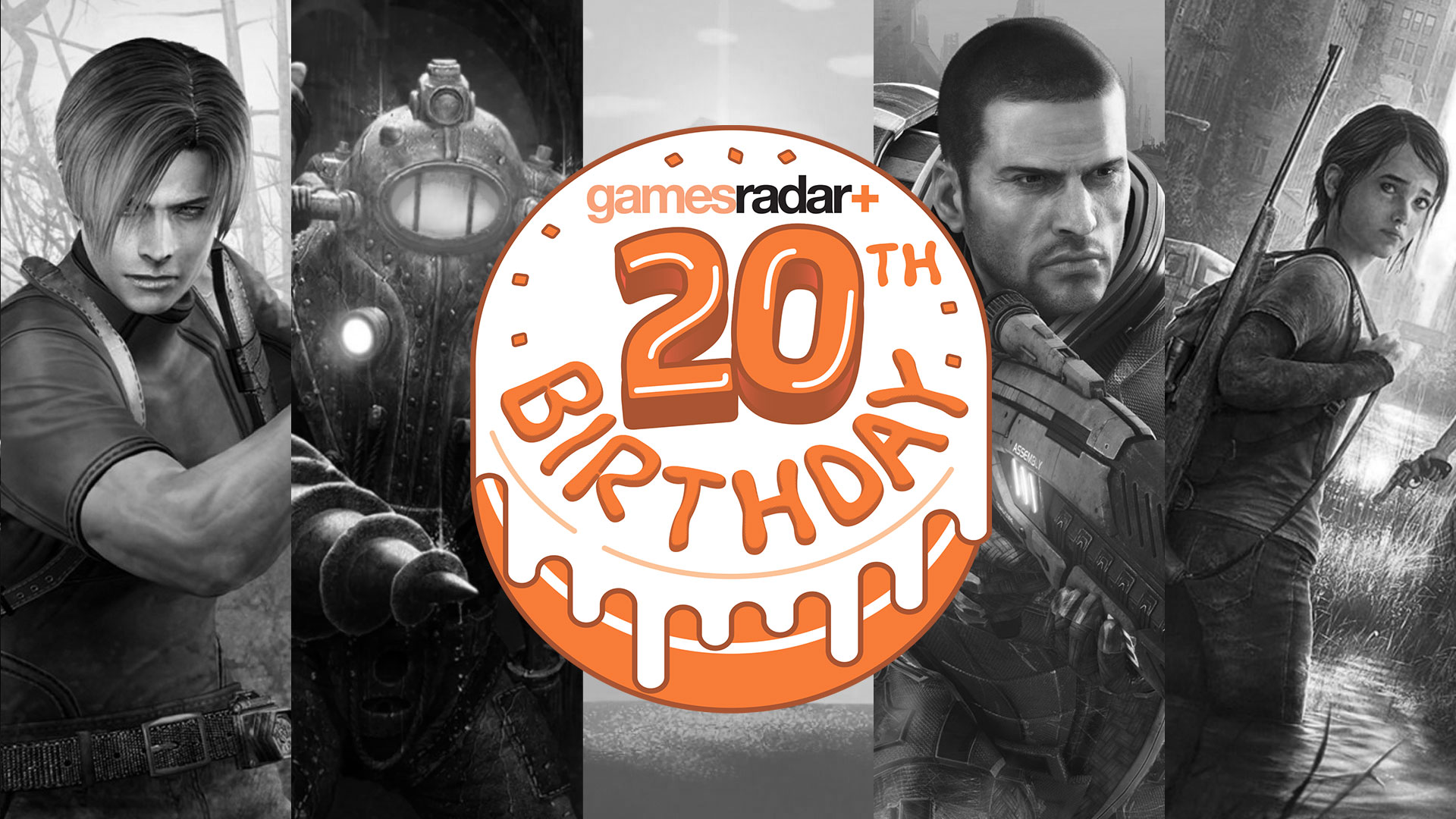
If you had to look back over the past 20 years, could you pick out just one game to be crowned the very best of each year? Well, to celebrate GamesRadar arriving at its 20th year of existence we have managed to do just that. Just about. And oh boy, what a trip it's been.
This period – 20 August, 1999 through 20 August, 2019 – began at the outset of the sixth console generation and is ending on the precipice of the ninth. We've seen the introduction of broadband and the advent of the HD-era influence the way we play and enjoy games. Plastic guitars and motion controls came and went, all of it paving the way towards virtual and augmented reality. Achievements and trophies sunk their claws into our waning attention spans, just as the smartphone began to rise to prominence. Crowdfunding, digital downloads, and DLC altered the way that we find and consume video games, while the impact of independent game development broadened the industry's creative horizons. Games have been a prominent part of popular culture for close to 50 years now, but there's certainly an argument to be made that the last two decades have been among the most integral for this industry's evolution and expansion. Thousands of games have been released in the last 20 years, and only a few are ever remembered; GamesRadar has been there for all this.
So what then are the best games of the last 20 years – including everything that's been released in 2019 so far? It's been a complex undertaking, but there was a process. Firstly, we picked what we considered to be the top 10 games of each year, from 20 August, 1999 through to 20 August, 2019 and then put it to a vote. A few years came to tiebreakers, so we then took the top two for those years and voted all over again. And these are the results.
Thanks for coming on this journey with us, dear reader. Stick around for another 20, yeah? (And if you want to vote yourself for your best games of the last two decades, we've posted the quiz at the bottom.)
1999 – Winner: System Shock 2

Generally speaking, there are two tiers of truly influential games in this industry. There are those that are widely considered to be instant classics, their impact immediately echoing out across the landscape of game creation – the Super Mario 64s and Metal Gear Solids of this world. And then there are the precious few that are considered to be so ahead of their time that their true impact and influence can only be properly gauged after some amount of distance and reflection. System Shock 2 is unequivocally part of the latter camp.
It isn't just that System Shock 2 had best-in-class FPS mechanics, underpinned by deeply flexible RPG systems and an open-ended game design philosophy that helped to establish it as the best game of 1999. It's the way that all of its disparate elements were woven together to create something truly unique and utterly indifferent to the movements being made elsewhere in the industry. A thought-provoking and tempered narrative interlaced expertly with overt themes of fear and isolation to materialise a game experience that felt truly inescapable. Under-appreciated by the masses to this very day, the influence of System Shock 2 is far reaching – hidden away in its code are lessons still yet to be taught to would-be game makers, facets of its design still not fully grasped by those willing for a way to turn the FPS genre on its head and carve out new and interesting ways to interact with a world and story with a wrench glued to your right hand. Josh West
1999 Shortlist:
Sign up to the GamesRadar+ Newsletter
Weekly digests, tales from the communities you love, and more
- Age of Empires 2: The Age of Kings
- Crash Team Racing
- Grand Theft Auto 2
- Gran Turismo 2
- Homeworld
- Planescape: Torment
- Pokemon Yellow
- System Shock 2
- Quake 3: Arena
- Unreal Tournament
2000 – Winner: Deus Ex
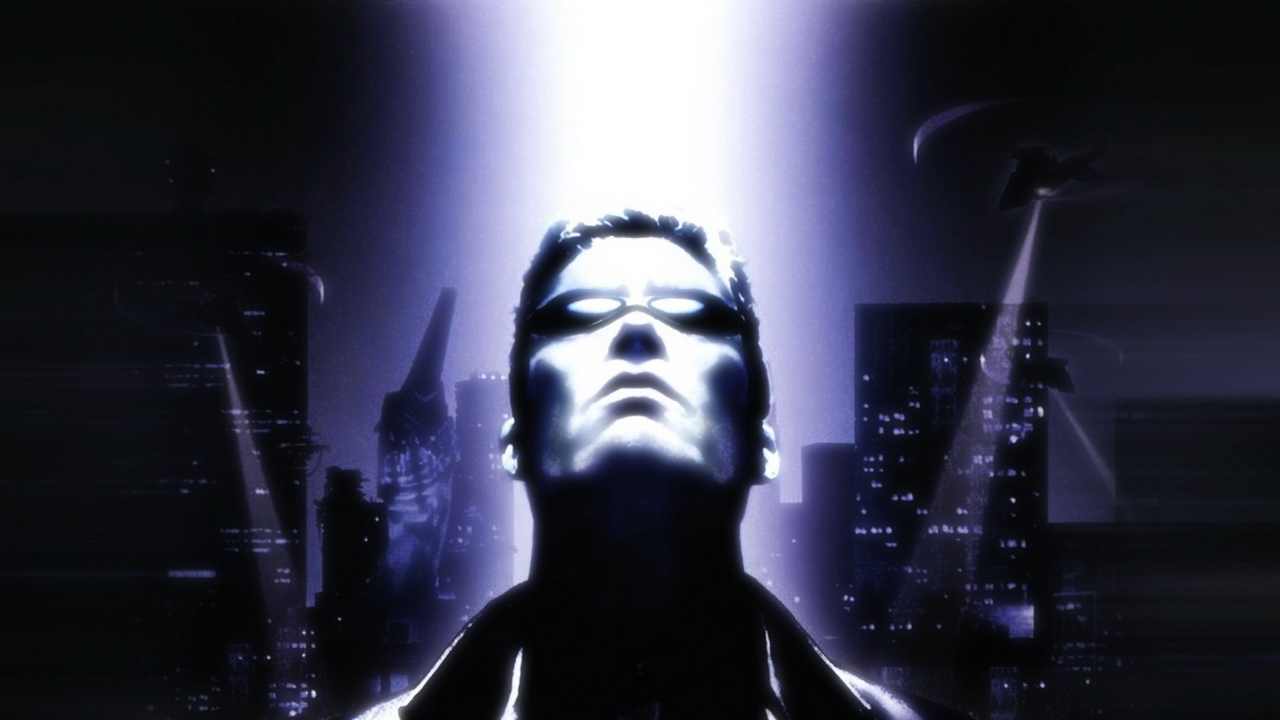
The 'immersive sim' is still as difficult to define today as it was at the turn of the century. But, for many, it can represent the quintessential gaming experience; a genre that houses but a handful of games, many of which are widely considered to be among the best ever committed to code. Games that brand the immersive sim branding are complex constructions by their very nature, wildly ambitious efforts that twist common design and narrative practices to create experiences quite unlike any other – they create the feeling that the game is yours, and yours alone, to command and dismantle. While it was Looking Glass Studios that first breathed life into the genre with Ultima: Underworld – and later refined it in Thief and System Shock – it is Ion Storm's Deus Ex that continues to stand as the culmination of the concept.
Deus Ex was truly ahead of its time. Many have attempted to carry on its legacy, though few have been able to successfully locate and replicate its magic. It’s a shooter that never forces you to fire a bullet, a game defined by the choice it affords you on an otherwise linear pathway, and a sandbox that doesn’t just give you sand to play with but the tools to build castles too. You’ll never play another game quite like Deus Ex; it’s a true testament to the power and potential of interactive entertainment, even today. Josh West
2000 Shortlist:
- Deus Ex
- Diablo 2
- Baldur's Gate 2: Shadows of Amn
- Pokemon Gold & Silver
- The Legend of Zelda: Majora's Mask
- Marvel vs. Capcom 2: New Age of Heroes
- Tony Hawk's Pro Skater 2
- The Sims
- Thief 2: The Metal Age
- TimeSplitters
Winner: Grand Theft Auto 3
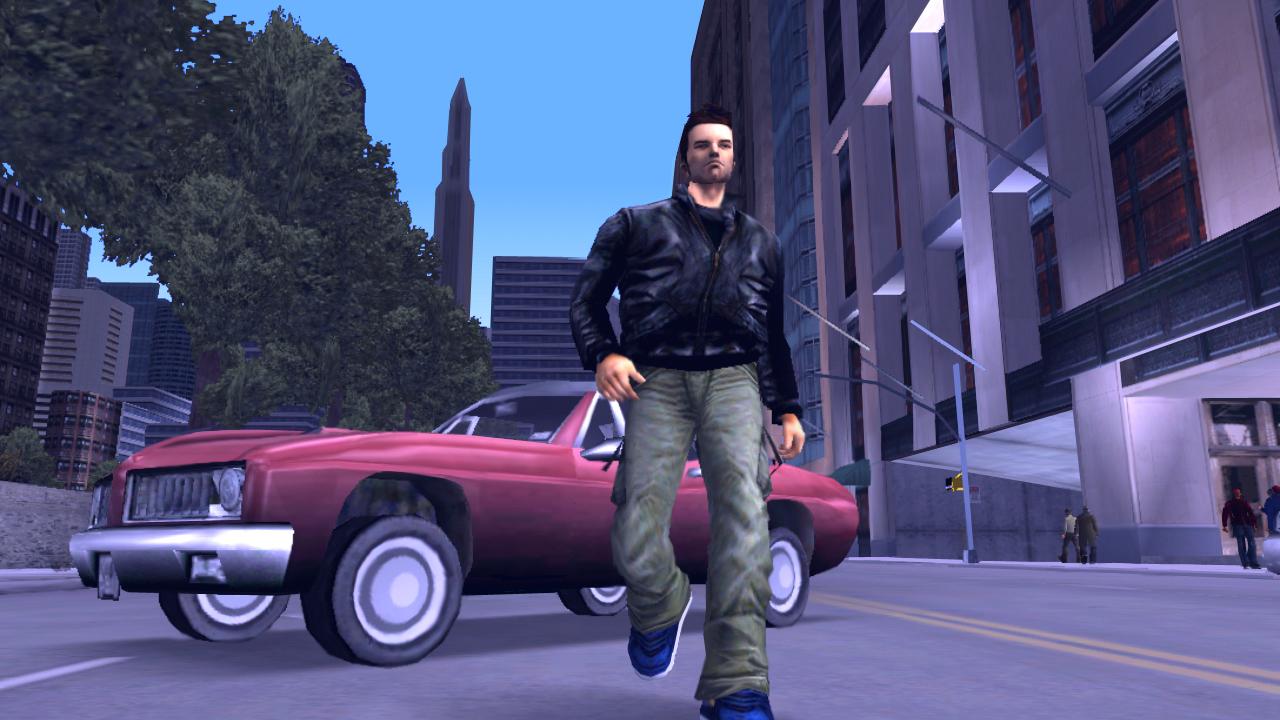
Obviously history remembers GTA 3 as pivotal and literal game changer – a title that spawned an entire industry of copycat games – but what isn’t so well documented is just how much numbing shock it left gamers in, the first few months after release. It’s go anywhere / do anything style of play was well known from the previous 2D instalments, but the sheer impact of moving those systems into 3D was almost overpowering. Now its systems might look simple – mainly gangs and police ignoring or attacking depending on your status and relationships – but at a time where games mainly took place in pretty corridors that wheeled out surprises like a theme park ride, it was an unprecedented step forwards.
In the same year that brought things like Silent Hill 2, Devil May Cry and SSX Tricky, the unpredictability of GTA 3’s emergent chaotic open world simply blew people away. Having a drive across town turn into an epic and extended story-filled adventure because you clipped a pedestrian and brought the police down on you, or turned a corner into the sights of a rival gang, pretty much was the game. Okay the aiming was terrible, and the car physics played like someone had made it having only ever read about wheels, but as a whole it was as much a formative game for the industry as it was the people who played it, open mouthed, at the time. Leon Hurley
2001 Shortlist:
- Black & White
- Devil May Cry
- Final Fantasy 10
- GTA 3
- Halo: Combat Evolved
- Ico
- Metal Gear Solid 2: Sons of Liberty
- Silent Hill 2
- Super Smash Bros. Melee
- Tony Hawk's Pro Skater 3
2002 – Winner: Grand Theft Auto: Vice City
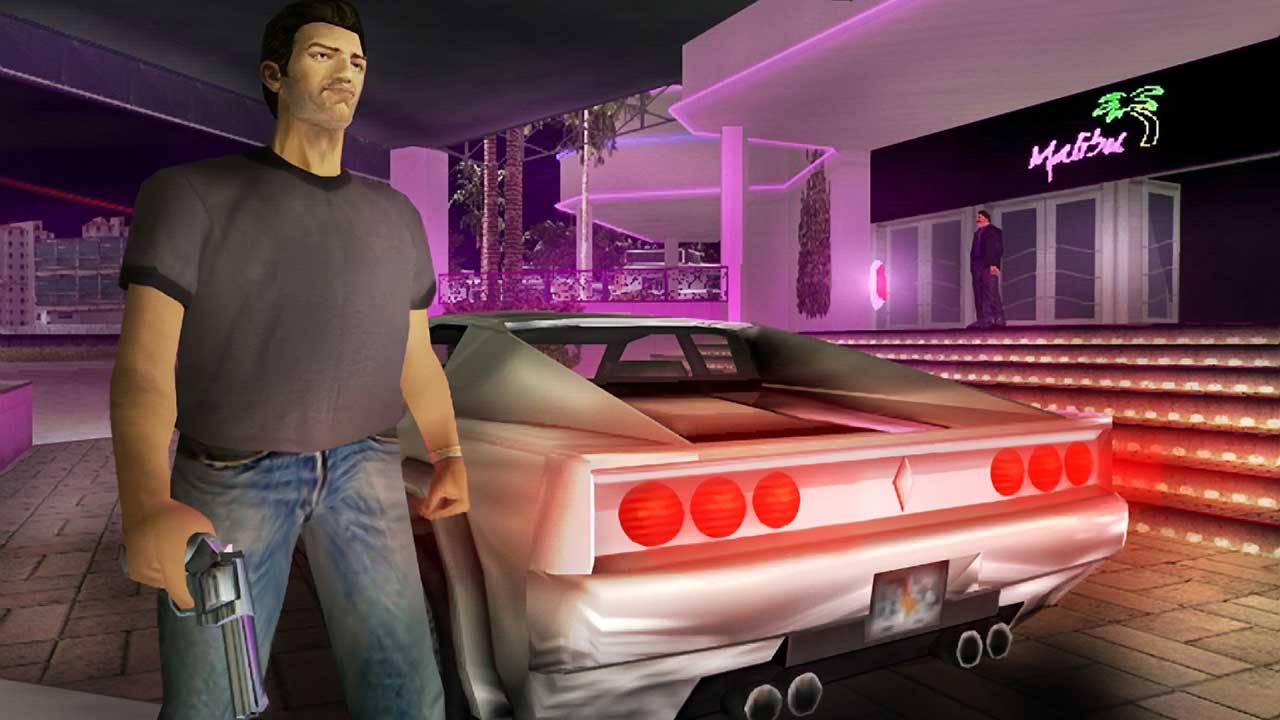
Just the fact that Grand Theft Auto could win two years back to back tells you a lot about how the series has changed and stayed the same since 2002. Grand Theft Auto: Vice City arrived almost exactly one year after GTA 3 as the rest of the gaming world was starting to realise how GTA 3 had changed the medium. Then GTA: Vice City did it again, and it did it better. Relatively minor gameplay improvements like the addition of motorcycles and a bigger, less-load-screeny world world have melted away into history, leaving Vice City's marvellous period piece of '80s excess to take center stage. The pastel sunrises of its Miami-analogue setting were as delicious as its neon-lit nights, and its soundtrack full of chart-toppers and deep cuts remains an unparalleled achievement in licensed music for games. The shortlist proves that many other deserving games came out the same year, but for us, 2002 was the year that Vice City took GTA from phenomenon to cultural touchstone. Connor Sheridan
2002 Shortlist:
- Animal Crossing
- Eternal Darkness: Sanity's Requiem
- The Elder Scrolls 3: Morrowind
- Grand Theft Auto: Vice City
- Hitman 2: Silent Assassin
- Metroid Prime
- Medal of Honor Frontline
- Rez
- Super Mario Sunshine
- Warcraft 3: Reign of Chaos
2003 – Winner: Star Wars: Knights of the Old Republic
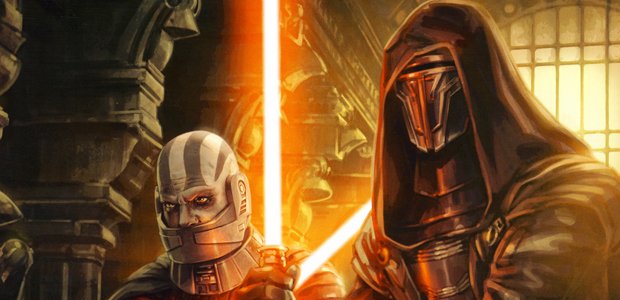
Star Wars: Knights of the Old Republic was the first Star Wars story of its kind. Nowadays a Star Wars tale without the presence of a Skywalker isn't a big deal, but when Knights of the Old Republic emerged, it was almost blasphemy. But BioWare, a relatively unknown studio at the time, created its own worlds within the Star Wars universe, creating stories that players could tell themselves in an open-world, MMORPG setting where everything felt fresh, despite its links to the movies.
But its real strength, like the LucasFilm blockbusters themselves, are the characters. Aside from the fact you can spend hours making your own character – who could range from a pure light side Jedi, to a power-hungry Sith, and of course the ambiguous Grey Jedi in between – you'd meet and adopt a crew of beings that would come and go throughout your Knights of the Old Republic adventures. It's this that cemented BioWare as the studio that aces relationships, and saw it go onto create the likes of the Mass Effect and Dragon Age series with all their love, friendship and rivalries. And let's not even go into that twist, shall we? It might be 16 years old, but it's still worth playing through. Sam Loveridge
2003 Shortlist:
- Beyond Good & Evil
- Freedom Fighters
- F-Zero GX
- Golden Sun: The Lost Age
- The Legend of Zelda: Wind Waker
- Max Payne 2: The Fall of Max Payne
- Prince of Persia: The Sands of Time
- Star Wars: Knights of the Old Republic
- SSX 3
- Viewtiful Joe
2004 – Winner: World of Warcraft

The gaming landscape has terraformed at least twice since World of Warcraft launched almost 15 years ago, but Blizzard's MMO has remained stubbornly true to itself the whole time regardless. What's more, other MMORPGs, hailed as "WoW Killers", have come and gone like the wind, while the genre itself has seen a gradual decline in the wake of a growing home console market and online, live service experiences, and yet still this titan of industry holds its position. How? How has World of Warcraft maintained its rule as the most popular, longest running multiplayer game of its time and type? The answer isn't as simple as those tabloid news reports crying "addiction!" would have you believe. Blizzard's online community of men and orcs is a microcosmic society in and of itself, one that's so warm and comforting that, once you're invested, it's basically impossible to ever leave for good. Alex Avard
2004 Shortlist:
- Burnout 3: Takedown
- Counter-Strike: Condition Zero
- Fable
- Half-Life 2
- Halo 2
- Metal Gear Solid 3: Snake Eater
- Rome: Total War
- The Chronicles of Riddick: Escape from Butcher Bay
- World of Warcraft
- The Sims 2
2005 – Winner: Resident Evil 4
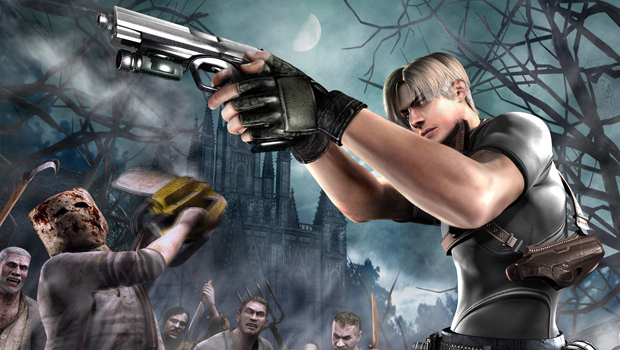
Resident Evil 4 ditched the series’ trademark zombies, but was scrapped – and resurrected – five times during its troubled development. One early version of Resident Evil 4 starred the super-powered hero ‘Tony’, in an action game co-created by legendary director Hideki Kamiya (of Bayonetta fame). This superhero-style approach was rejected as too far removed from Resident Evil’s roots by acclaimed producer Shinji Mikami, but later became the inspiration for Devil May Cry. Resident Evil 4’s fifth iteration is the third-person shooter we know and love, originally released on Nintendo Gamecube with a metacritic rating of 96. Set in a rural European village, you played as Leon Kennedy, tackling hordes of villagers infected by the mysterious Las Plagas parasites. Mikami’s flawlessly-paced adventure juxtaposed slow movement with rapid-targeting to ramp up the tension, creating a mega-mix of classic set-pieces, from the exhilarating cabin siege, to the breathless mine cart ride. Not to mention the iconic merchant (Whaddya buying, stranger?), the chain-saw wielding ‘bag head’, or the pre-Marie Kondo thrill of rearranging your item menu, so it fitted *just so*. Resident Evil 4’s imprint can be felt on Dead Space, Gears of War and almost all third-person horror games to follow; and is rightly regarded as one of the greatest games of all time. Daniel Dawkins
2005 Shortlist:
- Battlefield 2
- Call of Duty 2
- Civilization 4
- Devil May Cry 3: Dante's Awakening
- Jade Empire
- The Legend of Zelda: Minish Cap
- Phoenix Wright: Ace Attorney
- Resident Evil 4
- Tom Clancy's Splinter Cell: Chaos Theory
- Shadow of the Colossus
2006 – Winner: Elder Scrolls 4: Oblivion
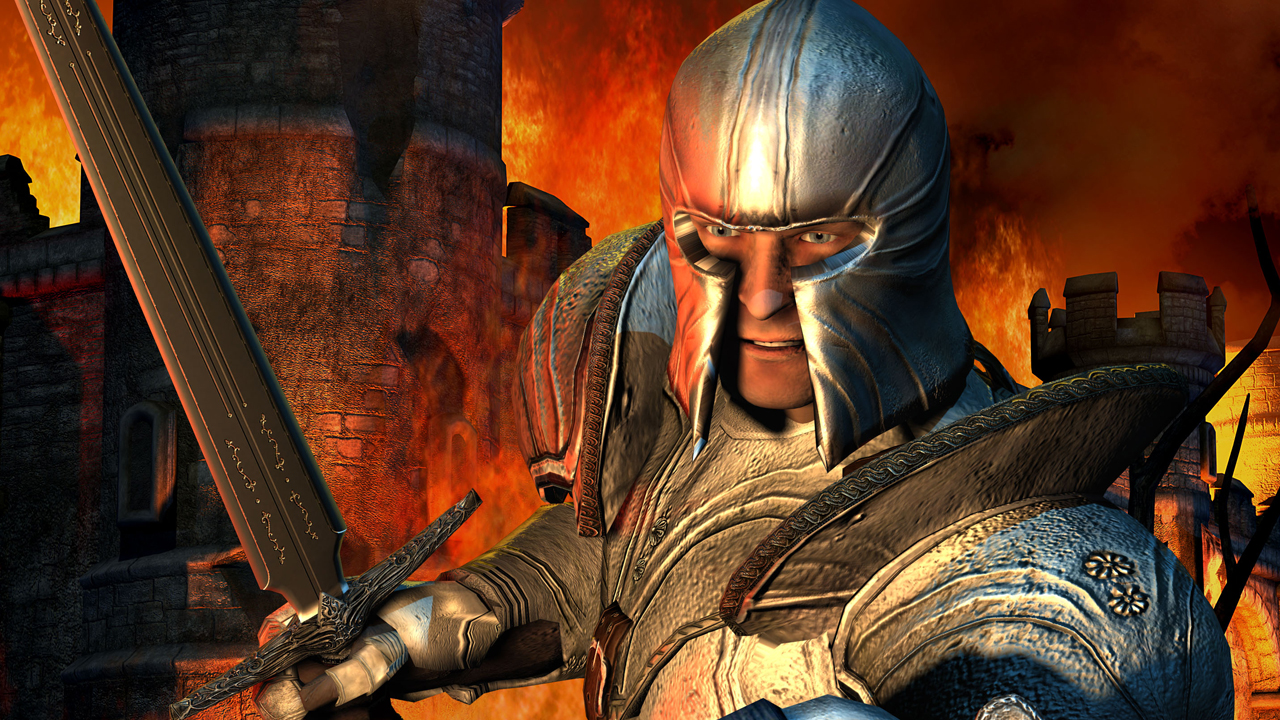
“I have seen the gates of Oblivion, beyond which no waking eye may see.” Who could forget that all famous opening cinematic? At the 27th of Last Seed, in the year of Akatosh, 433, you’re thrown into an unforgettable adventure in the open-world of Tamriel in Oblivion. Even by today’s standards, Elder Scrolls 4 still holds up very well, but back when it first released in 2006, its impressive graphics and sizeable scope made it feel like pure magic. The many NPCs, enemies, and Radiant AI system brought us what felt like a living and breathing world that offered up hours upon hours of open-ended adventuring. Not to mention the adventuring was actually pretty varied, with interesting side quests and a memorable main storyline. Jeremy Soule’s epically enchanting soundtrack made the experience all the more special, and it’s hard to forget Oblivion’s cast of characters voiced by the likes of Sean Bean and Patrick Stewart. And by Azura, by Azura! How could you possibly not remember followers like the Adoring Fan? You just can’t. Oblivion has cemented itself in the annals of gaming history as one of the best fantasy RPGs around, and firmly remains in our collective conscious thanks to its Game of the Year re-release and inclusion in Xbox One’s backwards compatible library. Sure, it has plenty of rather hilarious quirks and the combat can be a little clunky, but somehow that just adds to its never-ending charm. Heather Wald
2006 Shortlist:
- Bully
- The Elder Scrolls 4: Oblivion
- Final Fantasy 12
- Gears of War
- Ghost Recon: Advanced Warfighter
- Guitar Hero 2
- Kingdom Hearts 2
- New Super Mario Bros.
- Okami
- Wii Sports
2007 – Winner: Bioshock
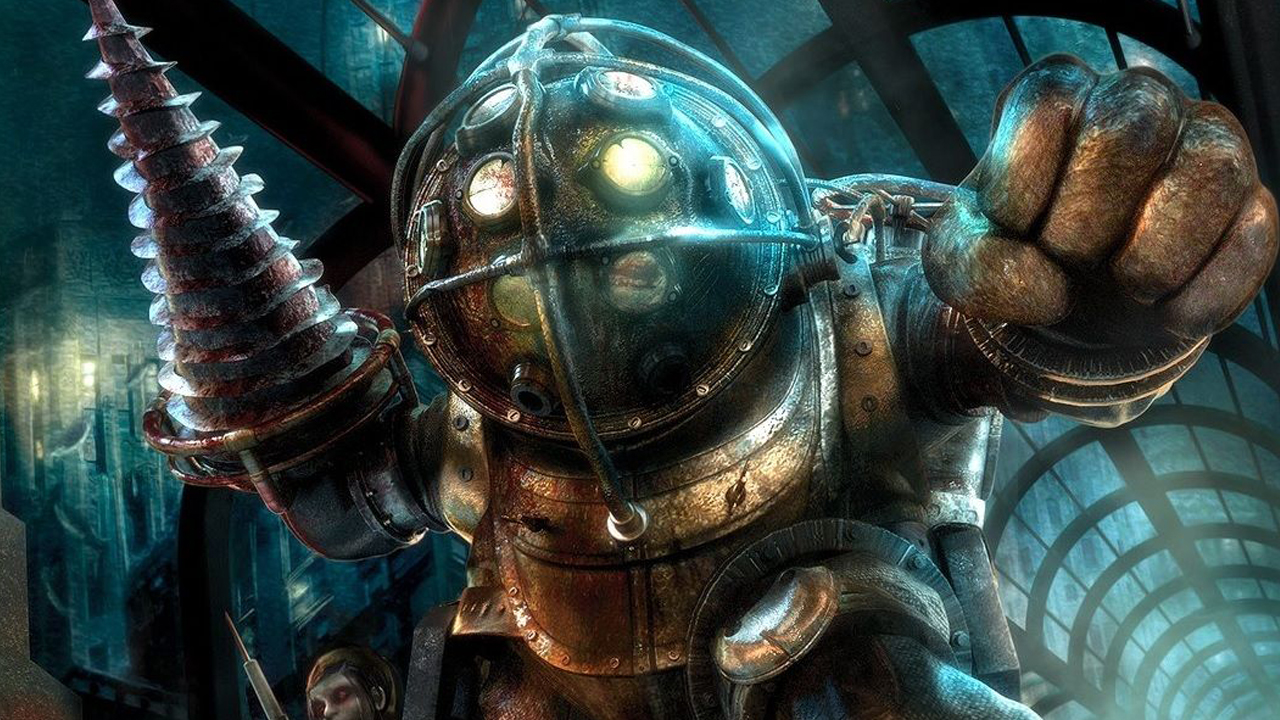
For such a well received and oft discussed game, Bioshock increasingly seems to stand alone in history’s judgemental spotlight. While a lot of games in this list permanently changed the genres they inhabited, or created new ones entirely, Bioshock’s impact was more minimal in the long run. That’s largely because it was an entirely self contained tour de force of world building. Ostensibly a ‘gun in one hand, trick power in the other’ shooter, like Deus Ex and the series it spiritually succeeded, System Shock, it’s strength wasn’t in its perfectly average gunplay and fun powers, it was the location. Every bolt of the undersea city of Rapture, every slumped body, broken door or surviving inhabitant filled in the backstory. It might be pile of Little Sister dresses neatly stacked by a child sized autopsy table; or a deformed and DNA ravaged Splicer in a highschool football uniform screaming ‘are you proud of me now, pa!’ to the rafters as you snuck past – it was a game that existed purely to show you its world and tell its story. Playing a shooter was just the price of admission. True it had a massive impact on art design for a few years, and audio diaries were everywhere for a far longer than was fashionable but otherwise it exists as a perfect and isolated triumph of creative vision, compared to most of the other games released in 2007. Which, considering the philosophies and ideas of Rapture founder Andrew Ryan, is a perfect fate. Leon Hurley
2007 Shortlist:
- Assassin's Creed
- BioShock
- Call of Duty 4: Modern Warfare
- Halo 3
- Mass Effect
- Rock Band
- S.T.A.L.K.E.R.: Shadow of Chernobyl
- Super Mario Galaxy
- The Orange Box
- Uncharted: Drake's Fortune
2008 – Winner: Dead Space
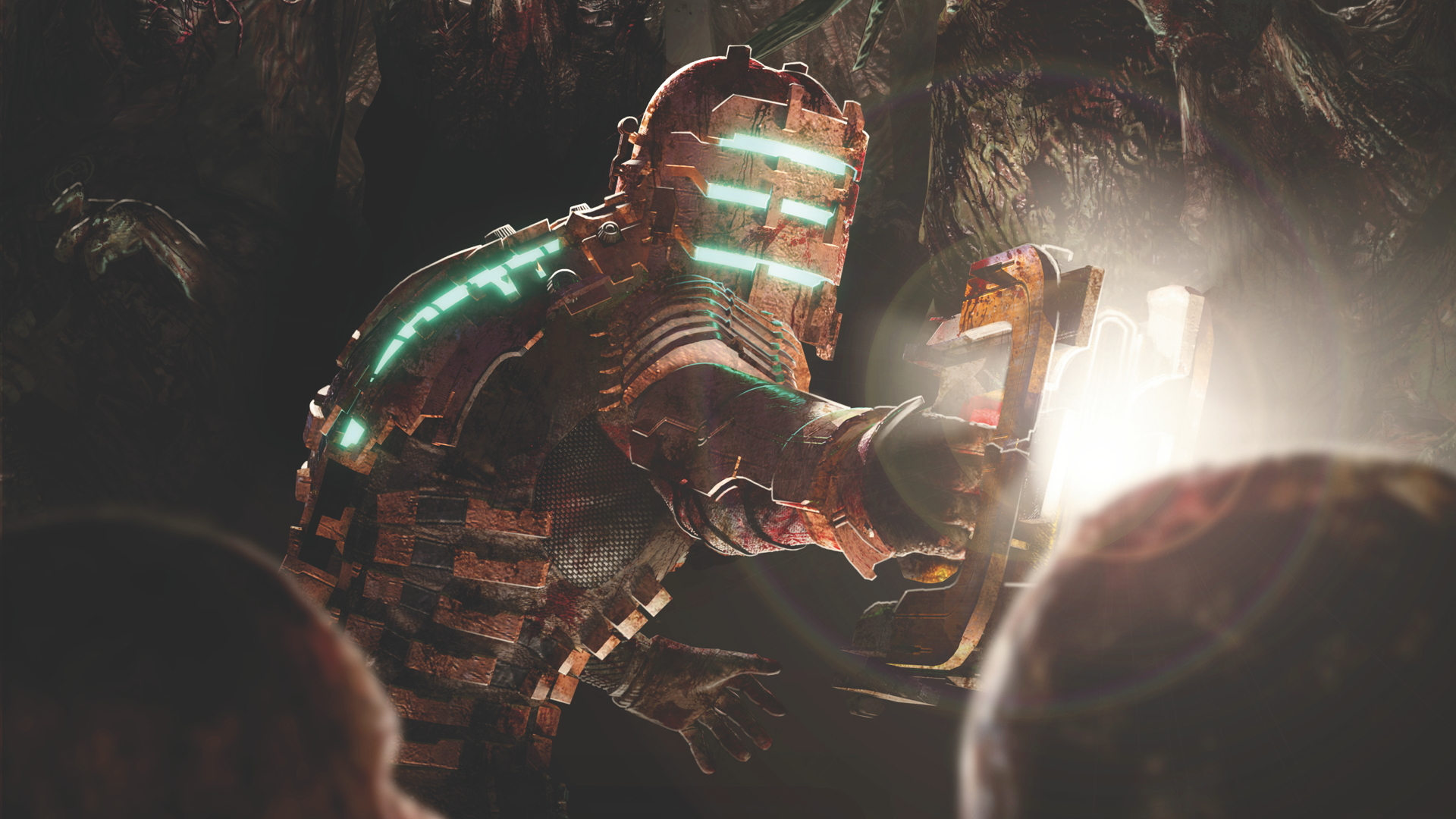
It was a banner year for game releases - the original Little Big Planet, a brilliant sequel to Fable, the indie darling Braid. But 2008's champion had to be Dead Space, the terrifying science fiction horror title released for the Playstation 3, Xbox 360, and PC. Known for its film-worthy script, excellent combat, and ghastly beasties called Necromorphs, it received heaps of praise from Gamespot, IGN, and, well, us. EA Redwood Shores (which then became Visceral Games, which then went defunct – RIP) pulled themes and play styles from the Resident Evil franchise, but added a healthy dose of religious fanaticism, handing players a game that showcases the terrors perpetuated by humans and creatures alike. In Dead Space, you're not stepping into the boots of a seasoned killer with unlimited ammunition, you're Isaac Clark, an engineer who can only kill Necromorphs by dismembering them with the tools of his trade. Plasma Cutting a Slasher's creepy legs off is oddly satisfying, but when that Slasher starts crawling towards you at nearly the same speed at which it ran, the momentary panic is unlike anything I've experienced before. There were moments when I would put the game down for days at a time, unsure if I had the intestinal fortitude to complete it. If we measure a game's worthiness by that metric alone, Dead Space's superiority is as obvious as Kendra Daniels' sketchiness. Alyssa Mercante
2008 Shortlist:
- Burnout Paradise
- Braid
- Dead Space
- Fable 2
- Far Cry 2
- Fallout 3
- Grand Theft Auto 4
- LittleBigPlanet
- Left 4 Dead
- Metal Gear Solid 4: Guns of the Patriots
2009 – Winner: Minecraft

Over the course of the last decade, everything has changed about Minecraft, and also, nothing at all. Through all its evolutions, ports, iterations, and mods, that same, fundamental gameplay loop of crafting and surviving remains its beating heart. The game’s original voxel aesthetic, which itself inspired an entirely new art style and genre all at once, may have seen some facelifts under Microsoft’s wing, but its flat-textured iconography of blocks and edges remains practically untouched, Daniel Rosenfeld’s dainty piano and electronica themes still humming in the background. But Minecraft would not be where it is today without the people who play it and, despite all you hear about Fortnite’s ceaseless popularity, its community is still one of the largest and most active in video games today. This is a game that’s no longer just a game, after all. It’s a million dollar property, a bedrock of global pop culture, a cutting edge educational tool, and a third space for millions of players, young and old. For a title that started out as a scrappy piece of developmental software, Minecraft’s journey is perhaps the most successful story of rags to riches in entertainment history. Alex Avard
2009 Shortlist:
- Assassin's Creed 2
- Batman: Arkham Asylum
- Borderlands
- Demon's Souls
- Left 4 Dead 2
- League of Legends
- Minecraft
- Street Fighter 4
- Trials HD
- Uncharted 2: Among Thieves
2010 – Winner: Mass Effect 2
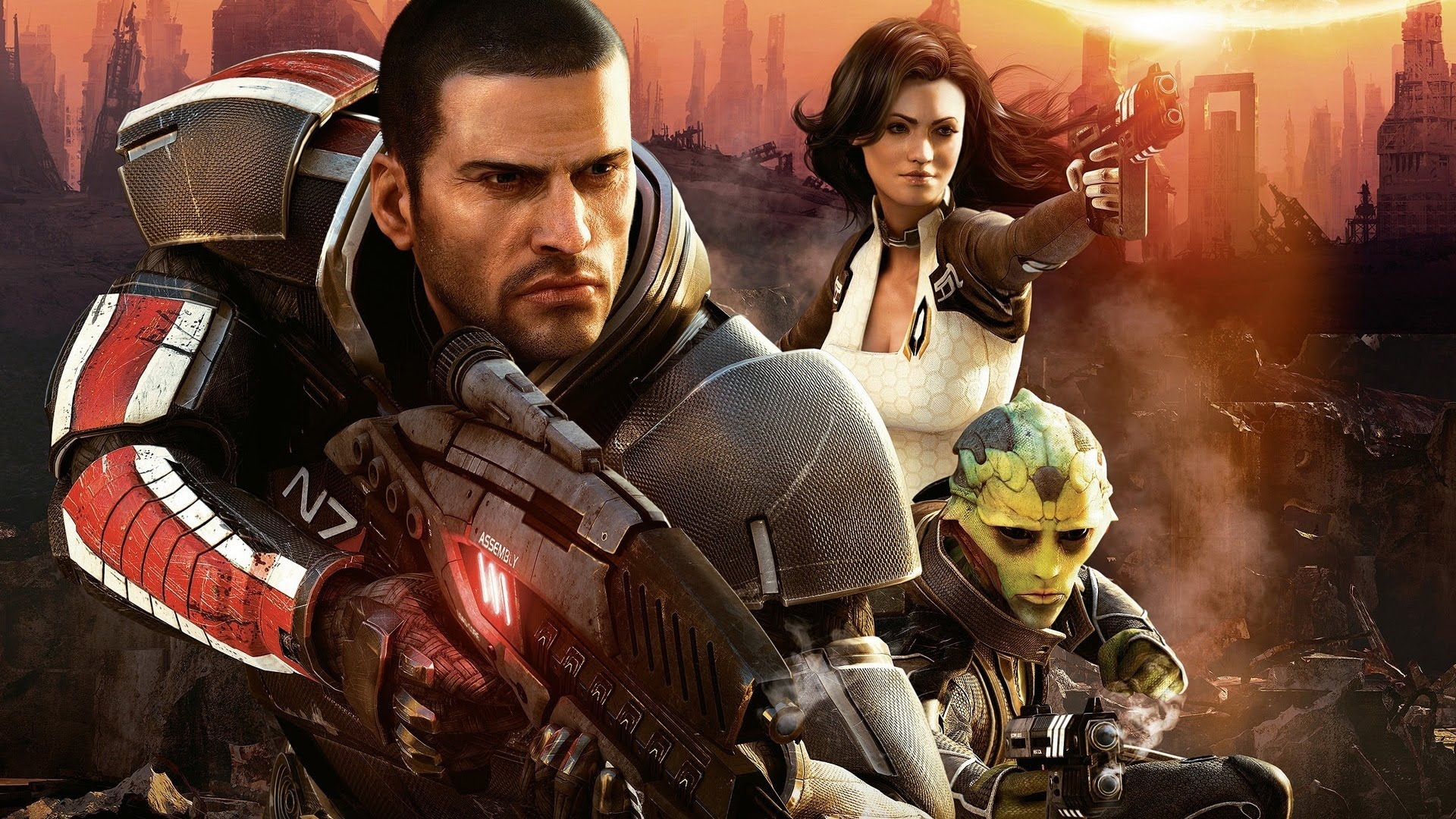
We were practically spoilt for choice in 2010 for solid game releases, but it’s quite rare that a direct sequel outshines its predecessor so completely, and Mass Effect 2 did just that and then some by jettisoning the series from the realms of quite good to absolutely stellar. With one of the most impactful opening sequences, Shepard and the Mass Effect series are quite literally and spectacularly reborn. The high stakes of the all famous suicide mission really makes you care about your companions, and less Mako driving and elevator riding are yet more proof that the sequel just does everything better. The return of the paragon and renegade system – which puts you in charge of whether you want your Shepard to be the no nonsense-gets-things-done commander, or the diplomatic compassionate leader – makes for the perfect way to be the hero of your very own space adventure. Brilliantly written and endlessly memorable, Mass Effect 2 is truly what every sequel should aim to be. Heather Wald
2010 Shortlist:
- Bayonetta
- Fallout: New Vegas
- Heavy Rain
- Limbo
- Mass Effect 2
- Red Dead Redemption
- Rock Band 3
- StarCraft 2: Wings of Liberty
- Super Meat Boy
- Super Mario Galaxy 2
2011 – Winner: Elder Scrolls 5: Skyrim
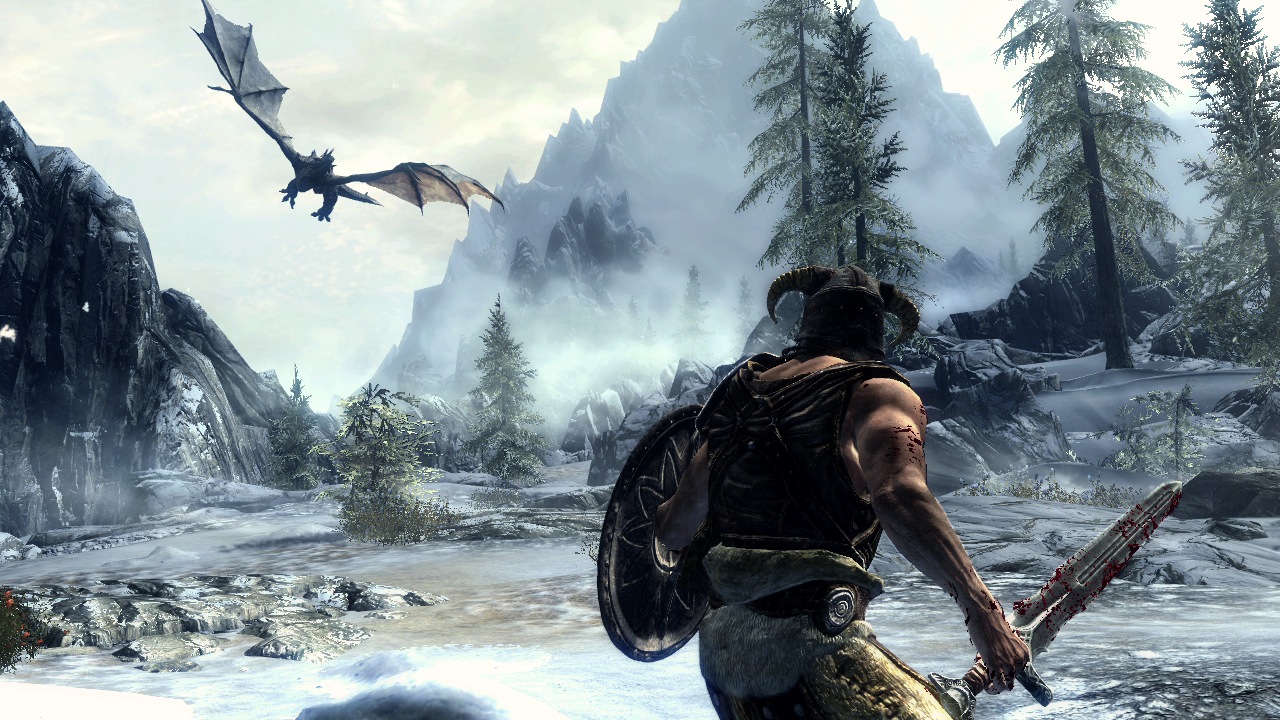
Before Elder Scrolls 5: Skryim's 2011 release for the Xbox 360, Playstation 3, and PC, you'd be hard-pressed to find someone in the community who genuinely believed that this game, or any game, could be better than Elder Scrolls 4: Oblivion. Now, with Skyrim in the forefront of our minds, Oblivion feels sparse and odd in comparison (it's still a great game, obviously). Skyrim strikes the perfect balance between condensing the clunkier aspects of Oblivion and expanding the game world and opportunities outward, pushing the limits of the game's Creation Engine (often to hilariously busted results). Gone is the character creation screen that requires you to pick a major skill at the outset, now you can make skill decisions in the throes of gameplay. And there's just. So. Much. Gameplay. Sure, you can skip all the side quests and barrel through the main storyline, where you try and save the world from being eaten by a dragon aptly called Alduin the World-Eater. But doing so would rob you of the true Skyrim experience, where you can dedicate hours to the minutiae of organizing the shelves of your newly-purchased home in Windhelm, or figure out what you did the night before during a sidequest that's basically The Hangover: Skyrim Edition, or just simply walk everywhere. This game tickles the fancies of both the messy casuals who want to run through it, hacking and slashing whatever meanders in front of them into oblivion (hehehe) and the obsessives who color coordinate their closets and simply must cover all four corners of the map ad infinitum (the game procedurally generates quests, so it can technically never end). It's one of the best RPGs of all time, so it's naturally the best game of 2011 (you were very, very close Dark Souls, I still love you). Alyssa Mercante
2011 Shortlist:
- Bulletstorm
- Bastion
- Dark Souls
- Dead Space 2
- Deus Ex: Human Revolution
- The Elder Scrolls 5: Skyrim
- L.A. Noire
- LittleBigPlanet 2
- The Legend of Zelda: Skyward Sword
- Portal 2
2012 – Winner: Journey
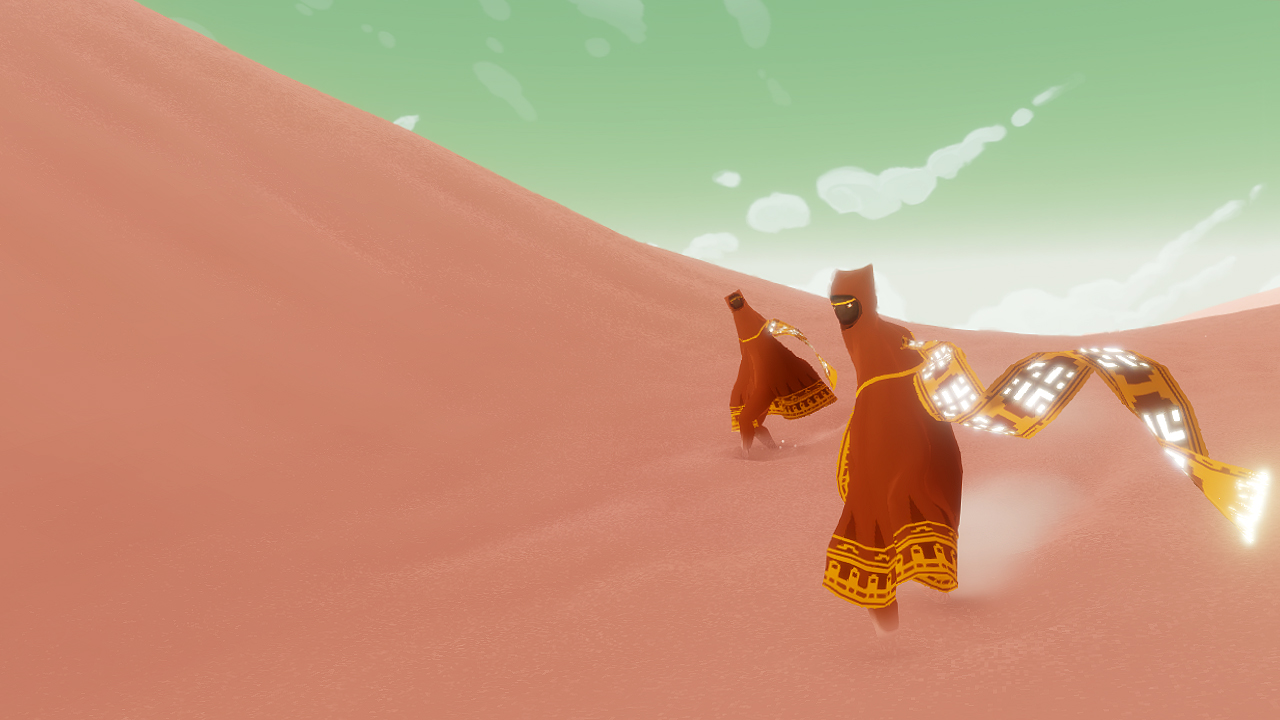
It's rare that an indie game manages to rise above the parapet of AAA blockbusters to be crowned the best game of an entire year, but that just goes to show just how iconic thatgamecompany's Journey has become. At its most basic, it's a game about a cloaked being trying to get to the top of a mountain. But, Journey is so much more than that. It's a game that understands human emotion on such a basic, fundamental level that it knows how players will react to any given situation, and respond accordingly. The moment when I realised the cloaked traveller beside me was another player, moving in unison through the sand, was an incredibly emotional moment.
It's that movement across the sun-dappled sands that's key to its success, and emotional power, too. In the mere motion of your character, it manages to convey a range of emotions, from hardship and accomplishment, to uncertainty and awe, foreboding and delight, curiosity and satisfaction. And that's all from gliding towards a mountaintop. Movement combines with the quality of the aesthetics, graphics and textures, and the flowing score to achieve near ethereal levels of joy as you move through the game. Journey makes you feel vulnerable, and acts a self-discovery tool in a way that no other game has before or since, and may well ever do. Sam Loveridge
2012 Shortlist:
- Borderlands 2
- Dishonored
- Far Cry 3
- Fez
- FTL: Faster Than Light
- Hotline Miami
- Journey
- Mass Effect 3
- The Walking Dead
- XCOM: Enemy Unknown
2013 – Winner: The Last of Us
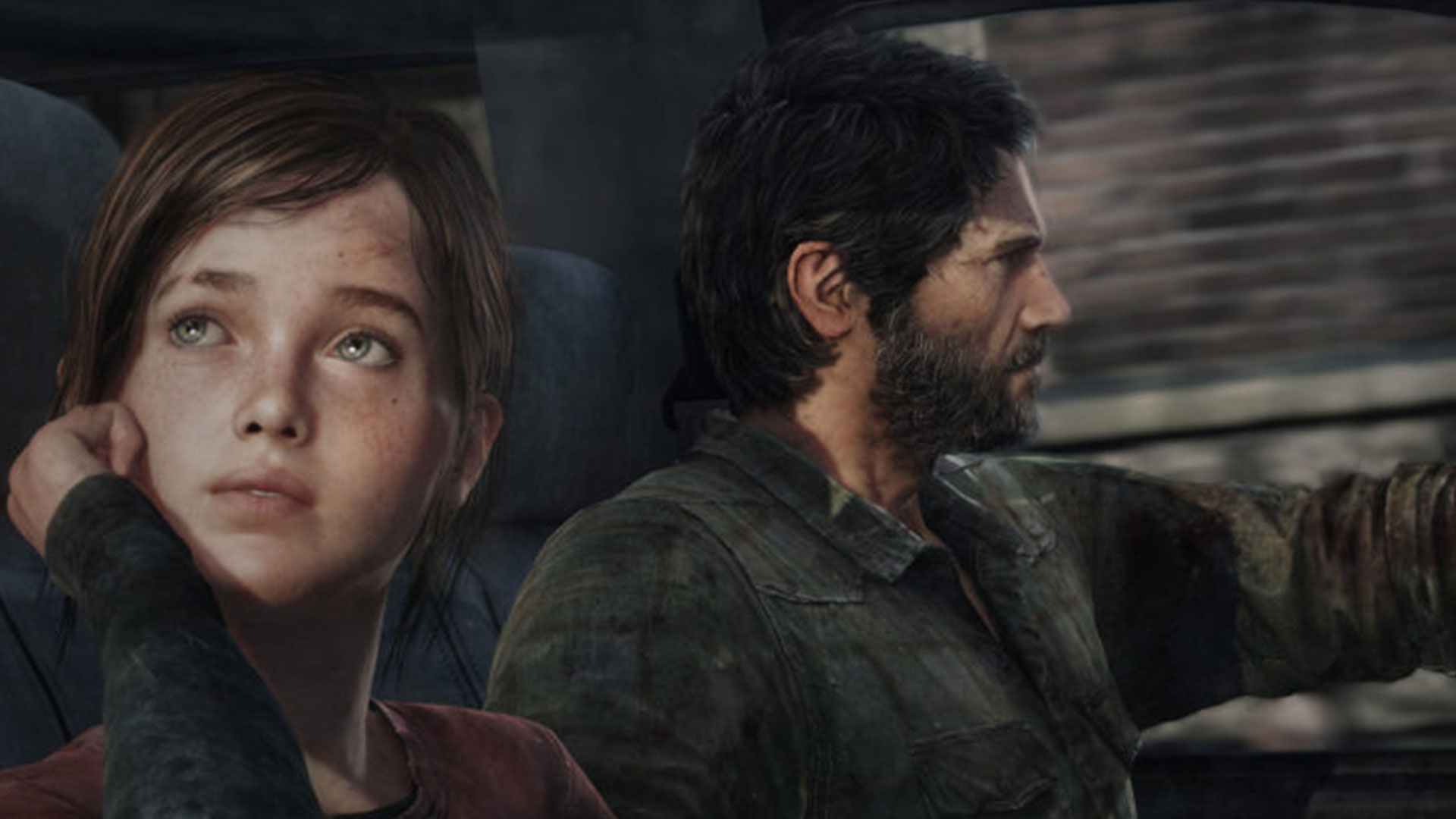
Arriving as the PS3's swansong at the end of the generation, The Last of Us felt like the culmination of all the best mechanics, graphics and gameplay finesse that the PS3 had to offer (not to mention doing it all over again on PS4 in Remastered form too). It strode onto the scene as something different, doing AAA with grit and cruelty, and dark, claustrophobic visuals that set it apart from the crowd of bright scenes and glorious vistas. Its take on post-apocalyptic life narrowed its view to two people, brought together through circumstances rather than choice, learning how to bond in a way that very few video games tend to tackle. Regardless of the blood, guts and combat, oh and clickers, this is really the tale of Joel and Ellie, your emotional attachments to both and the complicated feels that requires, and the pure need for them both to survive no matter the odds.
That influences how the combat feels too. As much as it's brilliantly crafted, it's also tense, often terrifying and brutal. It's the essential, if horrific, byproduct of these two characters trying to survive in the bleakest of situations, rather than a glorification. These are characters that have been through hell and emerged alive, if not quite triumphant, and it shows. Blend that with the innocence of Ellie, her innocence and unknowing of the world before this point and The Last of Us becomes the greatest piece of storytelling we've had to date – and of course, a brilliant game too. Sam Loveridge
2013 Shortlist:
- Animal Crossing: New Leaf
- Assassin's Creed: Black Flag
- BioShock Infinite
- Brothers: A Tale of Two Sons
- DOTA 2
- Fire Emblem Awakening
- Gone Home
- Grand Theft Auto 5
- Tomb Raider
- The Last of Us
2014 – Winner: Destiny
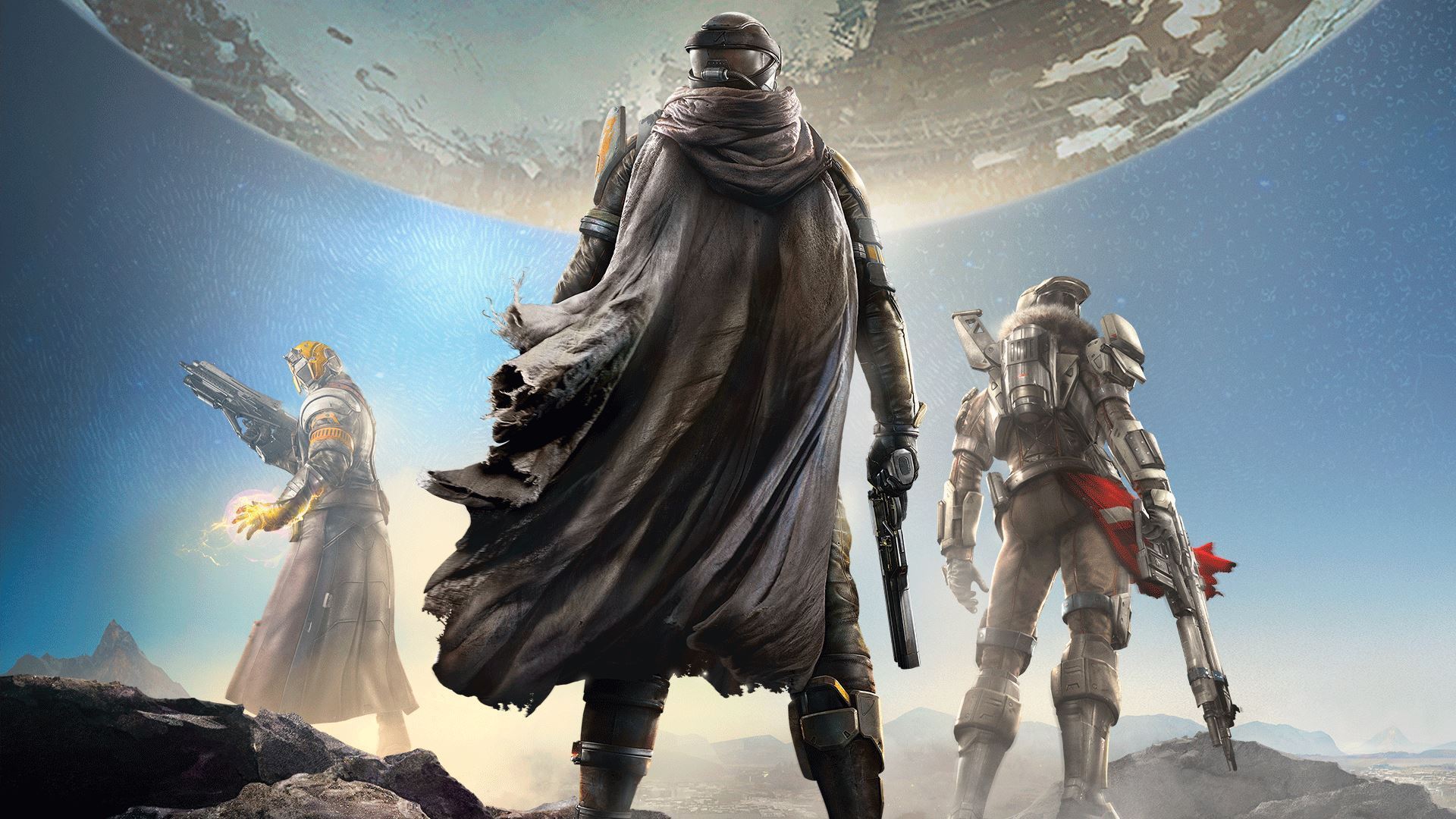
When it launched, Destiny was far from the best game of 2014, and it wouldn't truly hit its stride until September 2015 with the release of the Taken King expansion. That said, even in its earliest days, Destiny was something special – we just weren't sure what, exactly, it was. We'd had multiplayer looter-shooters before, but nothing with a persistent world on Destiny's scale. It felt like a new species of game had appeared, and observing its evolution was half the fun.
That said, Destiny's always had some of the tightest gunplay, best environments, and loveliest music of any FPS, and its rich world asked grand questions that kept players coming back (even if it didn't always answer them in a timely fashion). Its FPS core was so good that Destiny was able to survive until it got its MMO elements online. The release of the inimitable Vault of Glass raid in fall 2015 helped crystallize what Destiny is and would become, and it's still some of the most fun you can have in any shooter. Destiny will go down as a turning point in Bungie's history, and as one of the defining games of the seventh and eighth console generations. Austin Wood
2014 Shortlist:
- Alien: Isolation
- Bayonetta 2
- Destiny
- Divinity: Original Sin
- Hearthstone
- Mario Kart 8
- Middle-earth: Shadow of Mordor
- OlliOlli
- Titanfall
- Wolfenstein: The New Order
2015 – Winner: The Witcher 3: Wild Hunt
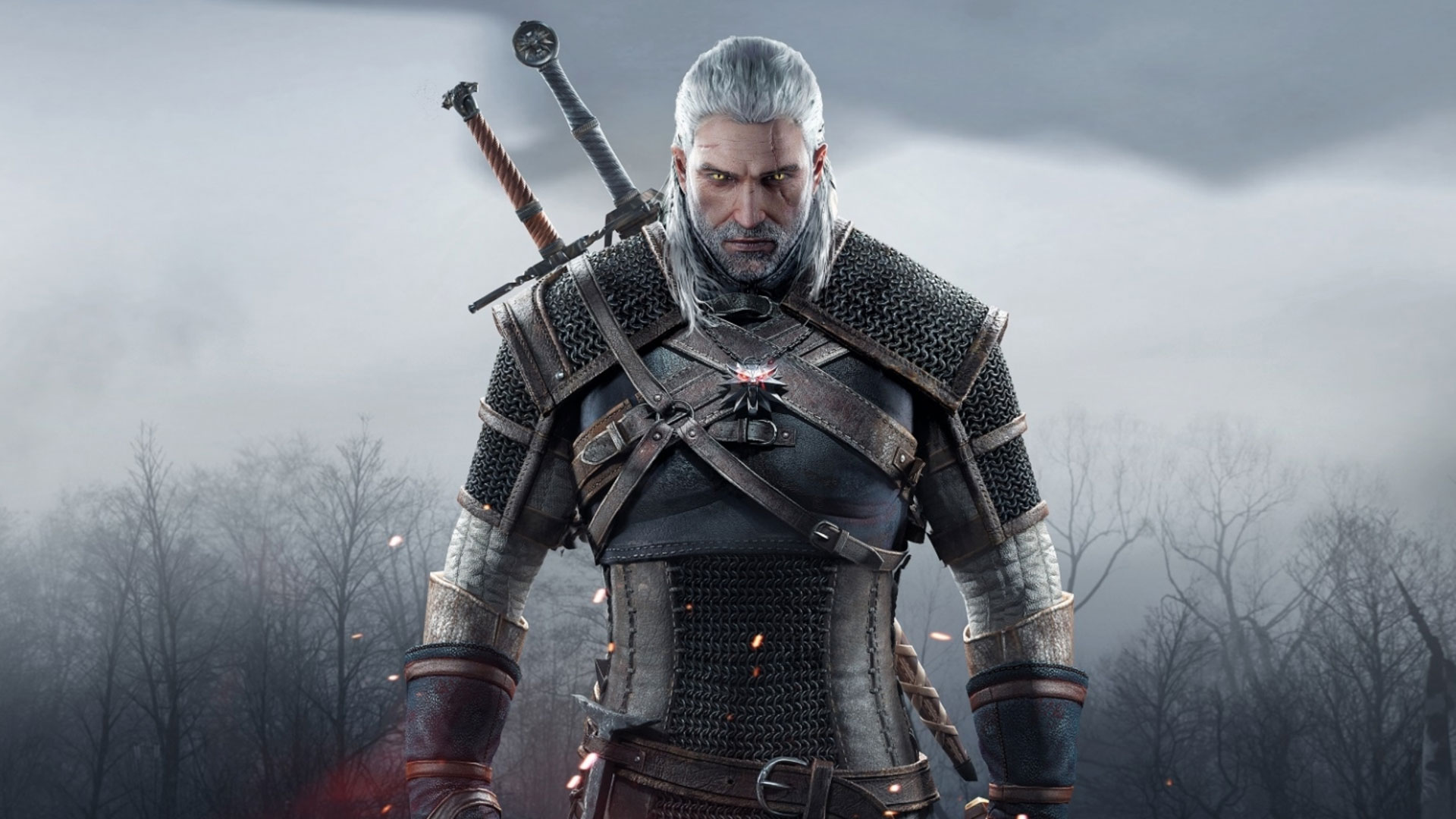
The Witcher 3: Wild Hunt did for fantasy gaming what Game of Thrones did for fantasy TV. Yes, other big, magical RPGs had come before, but none of them bewitched the world in quite the same way as the story of Geralt of Rivia and his ward, Ciri. It's the perfect mix of a story masterfully told, combat that weaves together the best of magic and hitting big things with sharp swords, and just enough consequence to make world it inhabits a place you can change for the better. Part of the success is down to Geralt, a lead character that seemed to break all the rules. He was rough round the edges, with none of the smarm that afflicts so many heroes, just a weary sense of duty and disdain for idiots. So many missions in the game – and there are a lot of them – started as simple bounties but became something special as it was revealed that the monsters were more persecuted than powerful. Layered over these smaller stories was a narrative that tackled family dynamics (even if your family is a little odd), romance and the nature of good and evil. Sex on a unicorn anyone? Rachel Weber
2015 Shortlist:
- Bloodborne
- Dying Light
- Her Story
- Life is Strange
- Metal Gear Solid 5: The Phantom Pain
- Pillars of Eternity
- Rocket League
- Shovel Knight
- Undertale
- The Witcher 3: Wild Hunt
2016 – Winner: Titanfall 2
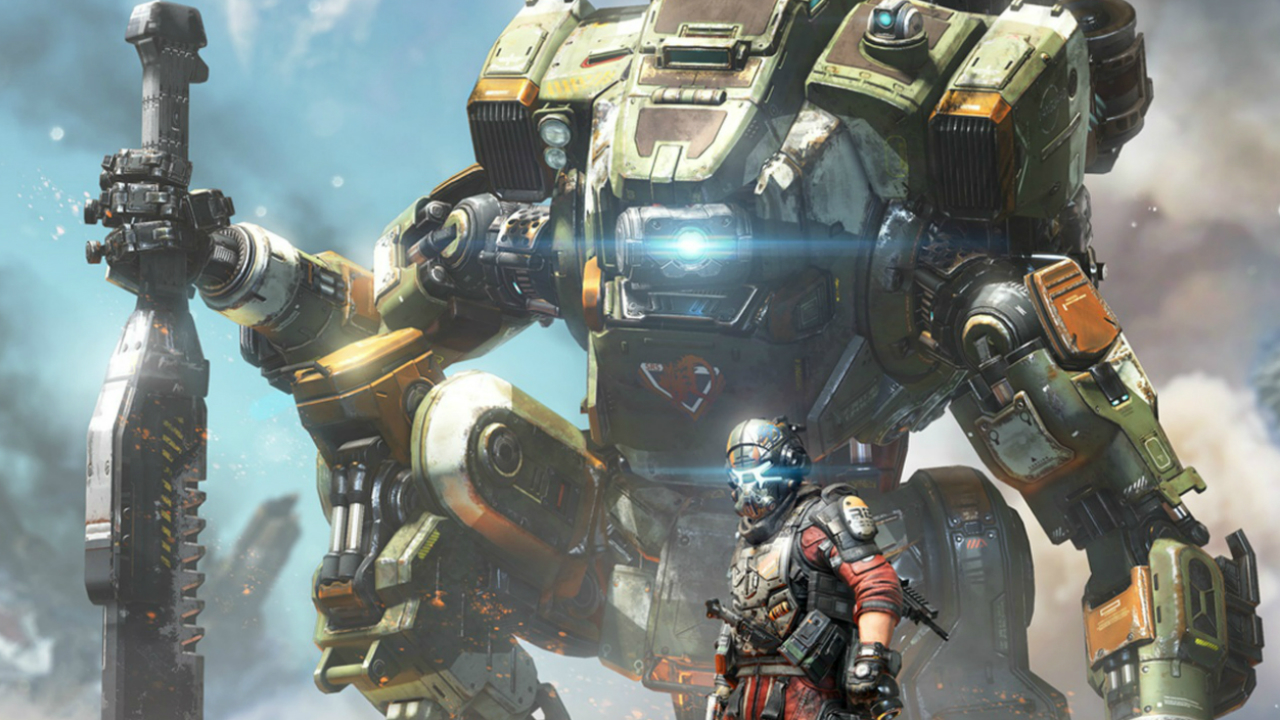
Apex Legends is good fun, but Titanfall 2 is still the best game Respawn's ever made. It's a brilliant multiplayer experience and one of the finest single-player FPS games of the past 20 years. Its parkour-driven, mech-powered multiplayer had some of the smartest maps, modes, and unlock trees of its time, so it's a crying shame it never found a big audience. Sadly, it's no mystery why: Titanfall 2 was released smack in-between 2016's Call of Duty and Battlefield installments, a baffling scheduling decision from EA which utterly buried the actual best shooter of the year. For all intents and purposes, Titanfall 2 multiplayer is dead and gone, but you can and should play the game for its campaign alone. In a mere six to eight hours, it delivers some of the cleverest and most memorable missions in FPS history, some of which rank right alongside the highlights of Half-Life 2 and BioShock. Austin Wood
2016 Shortlist:
- Dishonored 2
- Doom
- Hyper Light Drifter
- Inside
- No Man's Sky
- Overwatch
- Pokemon Go
- Stardew Valley
- Titanfall 2
- Uncharted 4: A Thief's End
2017 – Winner: The Legend of Zelda: Breath of the Wild
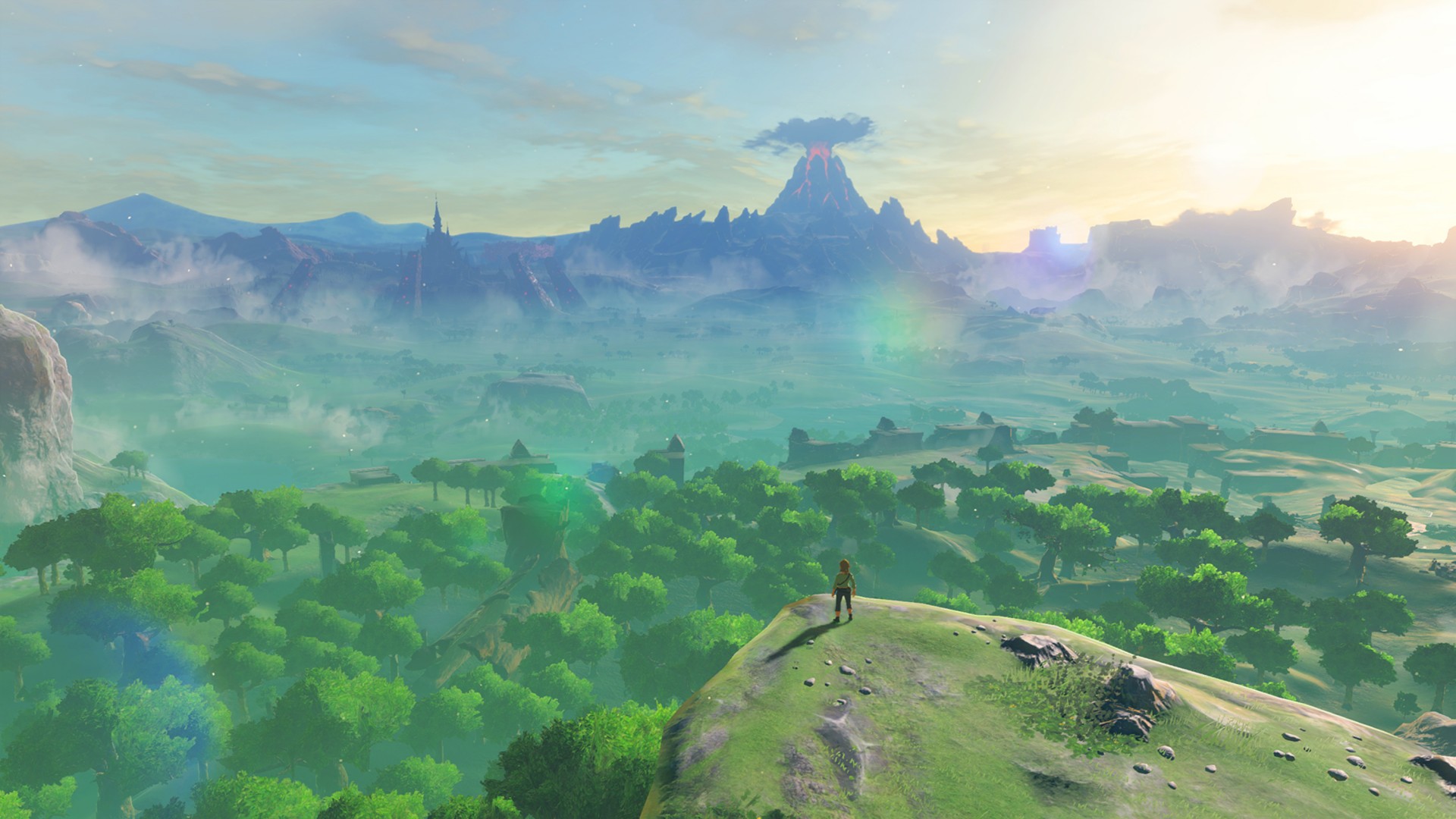
Taken on its own, The Legend of Zelda: Breath of the Wild was a marvel. Taken in the context of the rest of the Zelda series and the trajectory of AAA games as a whole, it was a miracle. Zelda: Breath of the Wild gleefully broke almost every convention that had defined the last two and a half decades of Zelda games, ending the "do dungeon, get item, do dungeon" cycle and even getting rid of bottles. It trusted players to be curious about the world around them, seeking high ground to scout out their surroundings and mark interesting areas for later rather than loading up their maps with endless to-do-list icons. Several other excellent open-world games came out in 2017, but none of them pushed the medium forward in the same way as Breath of the Wild. And we're not just saying all of this because we're still crushing on our Best Bird and Fish friends, Kass and Mipha. Connor Sheridan
2017 Shortlist:
- Assassin's Creed: Origins
- The Legend of Zelda: Breath of the Wild
- Destiny 2
- Fortnite
- Horizon: Zero Dawn
- Night in the Woods
- PlayerUnknown's Battlegrounds
- Resident Evil 7: Biohazard
- Super Mario Odyssey
- What Remains of Edith Finch
2018 – Winner: God of War
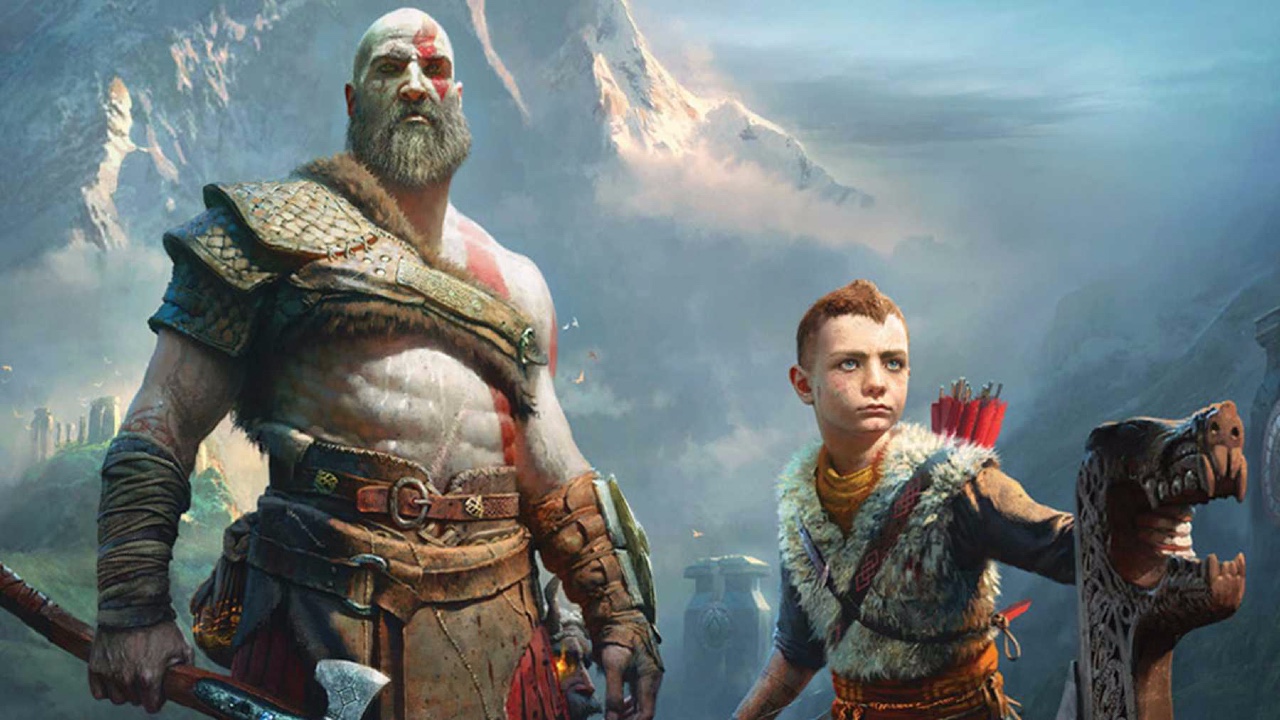
God of War’s redemptive tale of fatherhood is as much about the game’s past as it is Kratos’ future. The original PS2 games are a hard watch now, full of casual cruelty, remorseless sexism, and starring a character that seemed so cool at the time but increasingly – as PS2’s cartoony excess gave way to PS3’s more realistic honestly - was actually just kind of a dick. The excitement was palpable when viking Kratos stepped from the shadows for his E3 2016 debut but it posed an immediate concern: how would co-creator Cory Barlog make a character that once jammed a bare breasted sex trafficked slave girl into a giant cog to solve a door puzzle, more palatable for a modern audience? The answer was to make Kratos fully aware, and unresolvably repentant, of his past. While the relationship with his son, Atreus, formed the focal point for its incredible world of combat, monsters and godly infighting families, it’s the emotional resonance that glues it together and gives it all such meaning. The journey of redemption is as much for the game, as it is for its formerly monstrous mass murdering star. When Kratos leans into Atreus – his usually booming voice a cracking, weak breath – to whisper, “you must be better than me,'' it's as much a father warning a son off his past mistakes, as it is a message to games. Leon Hurley
2018 Shortlist:
- Assassin's Creed: Odyssey
- Astro Bot Rescue Mission
- Celeste
- Florence
- God of War
- Graveyard Keeper
- Red Dead Redemption 2
- Return of the Obra Dinn
- Marvel's Spider-Man
- Far Cry 5
2019 – Winner: The Outer Wilds
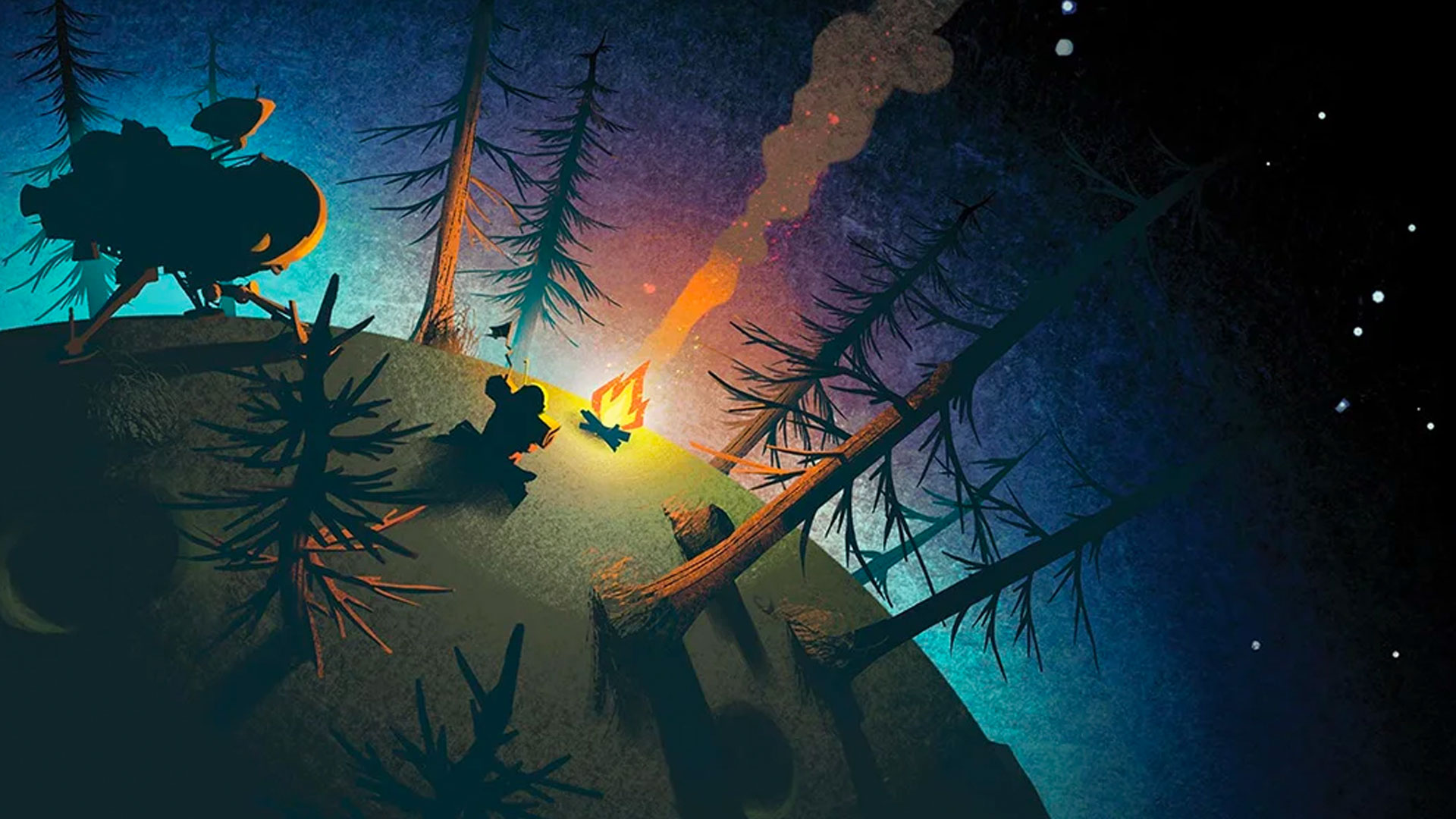
2019 isn't over yet, but Outer Wilds has already cemented itself as this year's surprise gem, despite still getting mixed up with Obsidian's The Outer Worlds in most online (and real life) conversations. Mobius Digital's exploration epic is at once an unintentional companion piece to No Man's Sky, yet also its polar antithesis. Knowledge is your main weapon of choice in this clockwork universe and, as the fifth new recruit to a rustic planet's space exploration outfit, it's your only shot at escaping a 22 minute time loop that always seems to end with a cataclysmic supernova. To say any more would be to commit sacrilege to Outer Wilds' hidden magic; the awe and wonder of self discovery, which compounds the game's fascination with life, death, meaning, and purpose. An other-worldly experience in every sense, play Outer Wilds knowing as little as possible, and you'll soon learn why everybody wants to talk about it, but can't. Alex Avard
2019 (so far) shortlist:
- Apex Legends
- Devil May Cry 5
- Dragon Quest Builders 2
- Kingdom Hearts 3
- Metro Exodus
- Resident Evil 2: Remake
- Sekiro: Shadows Die Twice
- The Division 2
- The Outer Wilds
- Wolfenstein: Young Blood
Vote for yourself and see if you agree with us!

Sam Loveridge is the Brand Director and former Global Editor-in-Chief of GamesRadar. She joined the team in August 2017. Sam came to GamesRadar after working at TrustedReviews, Digital Spy, and Fandom, following the completion of an MA in Journalism. In her time, she's also had appearances on The Guardian, BBC, and more. Her experience has seen her cover console and PC games, along with gaming hardware, for a decade, and for GamesRadar, she's in charge of the site's overall direction, managing the team, and making sure it's the best it can be. Her gaming passions lie with weird simulation games, big open-world RPGs, and beautifully crafted indies. She plays across all platforms, and specializes in titles like Pokemon, Assassin's Creed, The Sims, and more. Basically, she loves all games that aren't sports or fighting titles! In her spare time, Sam likes to live like Stardew Valley by cooking and baking, growing vegetables, and enjoying life in the countryside.


